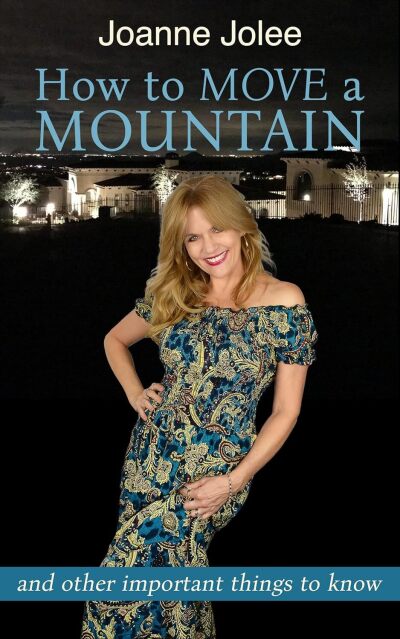 i
iThis content is paid for by an advertiser and published by CP Brand Solutions. The Christian Post newsroom was not involved in creating this content. Learn more about CP Brand Solutions.
This content is paid for by an advertiser and published by CP Brand Solutions. The Christian Post newsroom was not involved in creating this content. Learn more about CP Brand Solutions.

Unequally Yoked Marriage? We Have It Wrong.
There’s no such thing as an unequally yoked marriage.
Yoking is a coupling at the neck of paired draft animals, each compatible in size and strength to pull a load. The two remain two.
Marriage is the joining of a man and a woman—along with all their incompatibilities—for a one-flesh union (Genesis 2:24).
Biblically, yoking is associated with burden, heaviness, and captivity. Marriage is a partnership founded on love and respect, laying down one’s life, and the profound mystery of Christ and the church (Ephesians 5:32).
The term “unequally yoked” is commonly and erroneously used to describe a marriage between a believer and an unbeliever. Let me explain.
Yes, Paul, in 2 Corinthians 6:14, calls for believers to come out of all idolatrous, unequally yoked relationships with unbelievers. Because what fellowship does light have with darkness?
None.

The unbeliever is a soul dead in sin, and as the believer’s faith grows, so widens the painful spiritual chasm between them.
But what if you’re already married and your spouse isn’t a believer? Maybe you came to Christ after your marriage or married during a prodigal season.
You can move from a burden mindset to a flourishing grace. I’ll walk you through three conditions to get you there.
First, the Word. In 1 Corinthians 7: 12-16, Paul instructs married believers to remain with their unsaved spouse for a singular reason: Sanctification—not salvation—flows through the believer to the unbelieving spouse and their children. The marriage becomes a union blessed, set apart and graced, by God.
However, Paul says other terms in the saved spouse/unsaved spouse marriage must be met.
- The unbelieving spouse must be “willing to live” with their spouse (vs 12-13).
- There must be harmony in the home since God has called us to live in peace (vs 15).
Those words—willing to live—mean conditions at home fulfill our peace-driven calling. Peace is proof your unbelieving spouse approves of your faith and accepts your godly way of life for both the marriage and child-rearing.
Second, the what if. If frequent bickering, undermining, argumentativeness, or abusive behavior raises its ugly head, it may be a warning signal that your unbelieving spouse is mentally, emotionally, or spiritually stuck, unwilling to live in harmony—and unwilling to leave the marriage. Your spouse may fear suffering through a divorce, being alone, fiscal consequences, or failure. Whatever the reasons, stubbornly refusing to leave while simultaneously breeding hostility isn’t “willing to live” in peace.
If every avenue for reconciliation has been traveled and the problems continue, the unbelieving spouse has demonstrated that the terms of the union haven’t been met. At that, it’s permissible to divorce and marry a believer—and only a believer.
Choosing to marry another unbeliever puts your heart at further risk for being led astray, let alone experiencing the heartache of having no spiritual intimacy in your marriage. In time, you may come to lament and repent from deviating off God’s path.
Keep in mind that even the best of marriages are fraught with incompatibilities. Each spouse is from a different family with their respective histories, cultures, and ethnic backgrounds. Each is at varying maturity levels in faith and in understanding about spiritual things. In fact, some saved/unsaved unions may fare better on certain levels than the ideal marriage between believers where one spouse is strong on the solid food of faith while the other is carnal, weak, and struggling on milk.
Third, living a sanctified unsaved/saved union. If you’re married to an unbeliever and enjoying peace in your home, here are some tips to help it thrive.
Let Go. Don’t badger your spouse to convert. Salvation is the work of the Holy Spirit, so let it go and trust the outcome to God. We know it’s His will that all should come to repentance (2 Peter 3:9); therefore, remind God in your prayers as Moses and Abraham did in their pleadings (Exodus 32:11-14, Genesis 18:22).
You’ve got enough on your plate modeling salt and light in your daily walk while fighting spiritual battles. Pray and watch patiently to see what God will do. Build up your spouse, gently rebuke when necessary, and always speak the truth with heaps of love and grace. Remember, to the merciful, God shows Himself merciful (Psalm 18:25).
Grow in Faith. Christ is your first love. The Holy Spirit is your counselor and comforter. Stay rooted in faith, nourished by the Word, restored by prayer, and uplifted by fellowship with other believers.
Be Encouraged. Don’t get disheartened by what’s lacking in your marriage; instead, focus on the common ground, the lovely things that attracted you to each other, and the activities you enjoy doing together. Strengthen that bond and build a beautiful life.
Have you considered how your spouse may feel? My friend’s husband admitted being jealous of her affection for the other man in her life: Jesus! Assure your spouse that your growing faith and love for the Lord will only make your married life sweeter.
Stay joyful.
“Stay, and labour heartily for the conversion of thy relative. Endeavour to save a soul. Who knows but this may be the event? It is not impossible. And, though there be no great probability, saving a soul is so good and glorious a service that the bare possibility should put one on exerting one’s self.”
Note, Mere possibility of success should be a sufficient motive with us to use our diligent endeavours for saving the souls of our relations.
“What know I but I may save his soul? should move me to attempt it.” — Matthew Henry’s Commentary on the Whole Bible
Bottom line? If your spouse is an unbeliever, abandon the notion that your marriage is a miserable burden of unequal yoking. Dive into the fullness of your sanctioned-by-God, one-flesh union, focused on your continued growth in faith as you demonstrate the love of Christ to your mate.
About Joanne Jolee: A native New Zealander, Joanne is a master certified professional coach, conservatory-trained musical artist, author of, How to Move a Mountain – and other important things to know, business owner, mother of five, and grandmother of seven. She holds certificates in Old and New Testament studies. Learn more at Joanne’s official website - https://joannejolee.com/
